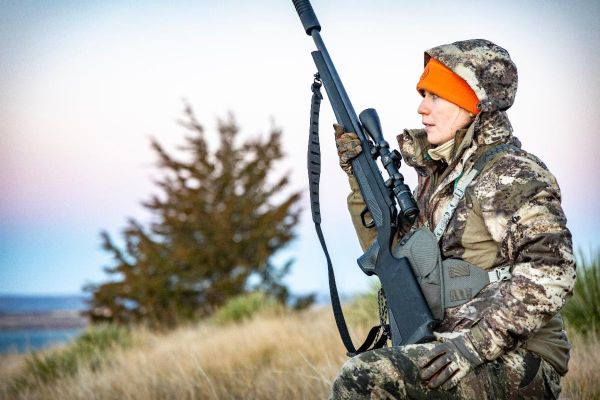Gear
Rediscover the Sub-Gauge Advantage
June 22, 2025 •Brad Fenson
Aram von Benedikt tackles the tricky question of just how essential a rifle is to a hunter, wadding his way through the subtle–but pivotal–differences between a standard hunting rifle and one of a higher grade. The easy answer would be to say that the more you invest in a rifle, the more it pays off. But Benedikt takes a more sophisticated approach that results not with the answer to the question, but with the information each hunter needs to self-assess, so that the audience may decide for his or herself the caliber (no pun intended) of rifle required.

Choosing the perfect hunting rifle requires careful deliberation. Begin by identifying your hunting objectives and the target game. Opt for a caliber suited to your prey, focusing on accuracy and humane shots. Prioritize bolt-action or semi-automatic actions based on your hunting style.
Weigh maneuverability against rifle weight, ensuring suitability for your hunting terrain. Compatibility with optics is crucial for precision, so opt for a rifle with reliable scope or sight attachment options. Seek a rifle that fits your body comfortably to reduce recoil impact and improve accuracy.
Quality matters—select a reputable manufacturer known for durability. While budget is important, prioritize features and performance. Before hunting, familiarize yourself with the rifle through practice and comply with local hunting regulations. By following these concise tips, you’ll secure a hunting rifle that enhances your experience and upholds ethical hunting practices.
Selecting the optimal hunting rifle demands careful consideration to ensure a successful and ethical hunting experience. Here are essential tips to guide your decision:
Choose a caliber suitable for your target game. Balancing power, accuracy, and recoil is crucial. Consult experts and ballistics data to make an informed choice.
Prioritize accuracy above all else. Look for rifles with free-floated barrels, quality triggers, and consistent performance at various distances.
Consider the rifle’s weight in relation to the terrain you’ll be navigating. Lightweight rifles are ideal for stalking, while heavier ones might suit more stationary hunts.
Ensure the rifle can accommodate a variety of optics for improved aiming precision. A reliable scope or sights are essential for ethical shots.
A rifle should fit you comfortably. Check the length of pull, stock shape, and cheek weld to guarantee proper alignment and reduced recoil impact.
For detailed tips from Aram von Benedikt, click here.